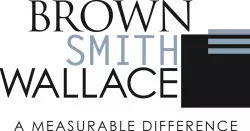Compliance audit season is coming. Is your financial institution ready to face regulatory scrutiny in the wake of TILA-RESPA Integrated Disclosures (TRID) changes? According to the Wolters Kluwer Regulatory & Risk Management Indicator survey conducted in the fall of 2015, 86% of responding banks said that complying with the new TILA-RESPA rules was their top regulatory challenge.
It is better to identify gaps in your compliance strategy before you undergo a compliance exam. Here are some tips on how you can prepare.
1) Are you in compliance with the Three-Day Rule?
TRID stipulates that mortgage consumers will receive a loan estimate within three days of applying for a mortgage. Consumers will also receive closing disclosures three days before the scheduled closing date. It's important that your processes include checks for the proper dating of key documents that trigger the three-day rule. Areas you should pay particular attention to include:
- Pre-Approval Letters
- Note Date
- Loan Date
- Rate Lock Documentation
- Closing Disclosure Documentation
- Property Value
2) No escrow account? Borrowers must disclose why.
Indicating that a borrower won't have an escrow account isn't enough. On the Closing Disclosure, they must indicate that they "declined it" or that the "lender does not offer one."
3) Are your changes in circumstance valid?
Any time a loan estimate is revised, financial institutions must ensure the changes are warranted under TRID. According to Wolters Klewer, the six events that justify a revised loan estimate are:
- Changed circumstances that cause an increase to settlement charges
- Changed circumstances that affect the consumer's eligibility for the loan or affect the value of the property securing the loan
- Consumer-requested changes
- Interest rate locks
- Expiration of the original Loan Estimate
- Construction loan settlement delays
4) Don't overlook key parts of your testing program.
What does your current compliance program to review completed loan files look like? Are you sampling across all products and channels?
To find out four more tips to identify gaps in your compliance strategy before a compliance audit, download our infographic "How to Prepare for a Compliance Audit."
To schedule an independent TRID review to determine your financial institution's compliance with the associated regulation, click here or contact Bianca Sarrach, Principal, Advisory Services, at 314.983.1365 or bsarrach@bswllc.com.
The content of this article is intended to provide a general guide to the subject matter. Specialist advice should be sought about your specific circumstances.

